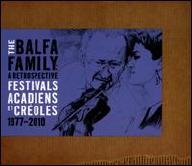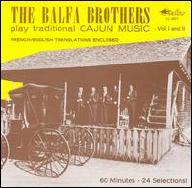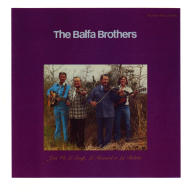In 1967, Dewey, Rodney, Will and his daughter Nelda, along with Fontenot formed the Balfa Brothers and began spreading the Cajun sound throughout Europe and at folk festivals across the U.S. In 1968, they played for the Olympics Festival in Mexico City. They made their first professional recording, "Le Valse de Bambocheurs/Indian on a Stomp," in 1967 for Swallow. This led to an album, Balfa Brothers Play Traditional Cajun Music, also on Swallow. After releasing another LP, the Balfas appeared in the 1972 Les Blank documentary Spend It All, which introduced a new generation to the lively Cajun sound. That year they also recorded The Cajuns on Sonet and another for Swallow, The Good Times Are Killing Me, which included the soundtrack for the documentary of the same name. Although most of their musical focus was on tradition, the Balfas were not averse to trying more modernized Cajun songs with a nightclub orchestra comprised of Dewey, Rodney, accordion player Nathan Menard, fiddler Dick Richard, J.W. Pelsia on steel guitar, Austin Broussard on drums and Rodney's son Tony on bass guitar.
Things went well for the band until February 1979, when Rodney and Will were killed in a car wreck. The next year, Dewey's wife died of trichinosis. Despite the tragedy, the Balfa Brothers continued (with a few personnel changes) even after Dewey's death in 1992. Through them, his rich and valuable legacy of Cajun music carries on. ~ Sandra Brennan, Rovi















